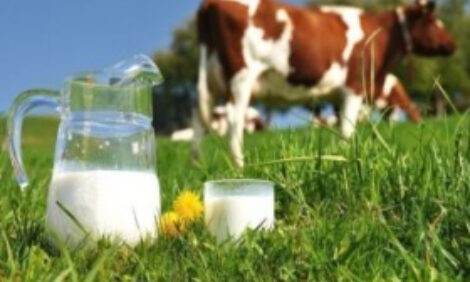



Beef Contract Helps to Minimise Price Risk
SOUTH AFRICA - The Johannesburg Stock Exchange (JSE) in South Africa has recently launched a “Beef Carcass” Futures Contract. Dr Raphael Karuaihe, commodity derivatives manager at the JSE, and Lardus van Zyl, chairperson of the Red Meat Producers Organisation, talked to Glenneis Kriel about this market development.It was with great excitement and shouts of “Beef is back” that the Johannesburg Stock Exchange (JSE) in January this year listed a Beef Carcass Futures contract.
Market response has so far been promising, with over a hundred contracts worth more than R4 million (about 172 640 GBP) being traded since its inception, at the time of writing.
But this is not the first time a beef contract has been listed on the JSE. According to Dr Raphael Karuaihe, manager of the commodity derivatives market at the JSE, a beef contract was listed back in 1995 when the derivatives market was first initiated in the country. The contract, however, never really took off and was closed a few years later.
Dr Karuaihe believes the market is ready for this contract now: “The commodities derivatives market was a complete new concept back then, especially for farmers and agricultural role players.
"Many farmers have since started using derivatives for wheat and maize to hedge themselves against price fluctuations. The community in effect has become more accustomed to the idea of using derivatives to lock in prices,” Dr Karuaihe said.
Learning from the past
There were also challenges in the way the contracts were originally designed. Where the old contract entailed the physical delivery of carcasses at central points, the new contract is cash settled.
Dr Karuaihe explained that the contract is settled in cash upon expiration, with the settlement price being determined by the JSE referencing transactional data from members of the Red Meat Abattoirs Association (RMAA). A total of 30 abattoirs are currently contributing their prices weekly to ensure accurate data is delivered to the JSE.
The size of the contract has also been kept small at 1 000 kg, which is equal to about four cattle carcasses, to allow smaller participants to take part in the market. To focus liquidity for the market, there are only four trading expiry months, namely March, June, September or December.
Dr Karuaihe said that the past contract basically served as a guinea pig for the new contract: “The JSE has used the past experience and consulted the beef industry for eighteen months to ensure the new product is more in line with what the market demands.”
Nurturing the market
The JSE will be nurturing participants in the beef market to ensure that it reaches its full potential.
“It is encouraging that this is something that a number of market participants have been asking for, now the challenge is to increase the number of participants both on the buy and sell side.
"Trade is expected to grow as people become more aware of how the contract can help them reduce price risks in a volatile market. We will therefore present workshops across the country to make people more aware and teach them how to use the contract,” he said.
Dr Karuaihe added that the contract couldn’t have come at a better time as the drought in South Africa is expected to bring a lot of price volatility to the meat market.
“The contract will help farmers, abattoirs, retailers and restaurant owners to reduce their price risks. Speculators on the other hand could use the contract to increase returns,” he said.
Lardus van Zyl, Chairperson of the Red Meat Producers Organisation, said that farmers are cautiously excited about the development: “We realise that the beef carcass contract will help to bring transparency to the market, but those of us who haven’t used the grain contracts yet are still a little nervous about using the derivatives market.”
He added that the beef carcass contract won’t really help farmers to reduce their price risks, as most of the cattle in South Africa are finished off in feedlots. Farmers are however looking forward to the listing of the weaners contract, which is expected to happen within the next six months.
Van Zyl said that farmers however need to use the instrument wisely: “Farmers shouldn’t use these contracts to speculate as that could definitely bode the end of your farm. Instead, they should look at their production costs and what is going on the market and based on this, fix a price that they feel is fair to hedge themselves in.”
For more information contact the JSE at [email protected] or call +27 11 5207039.
TheCattleSite News Desk


